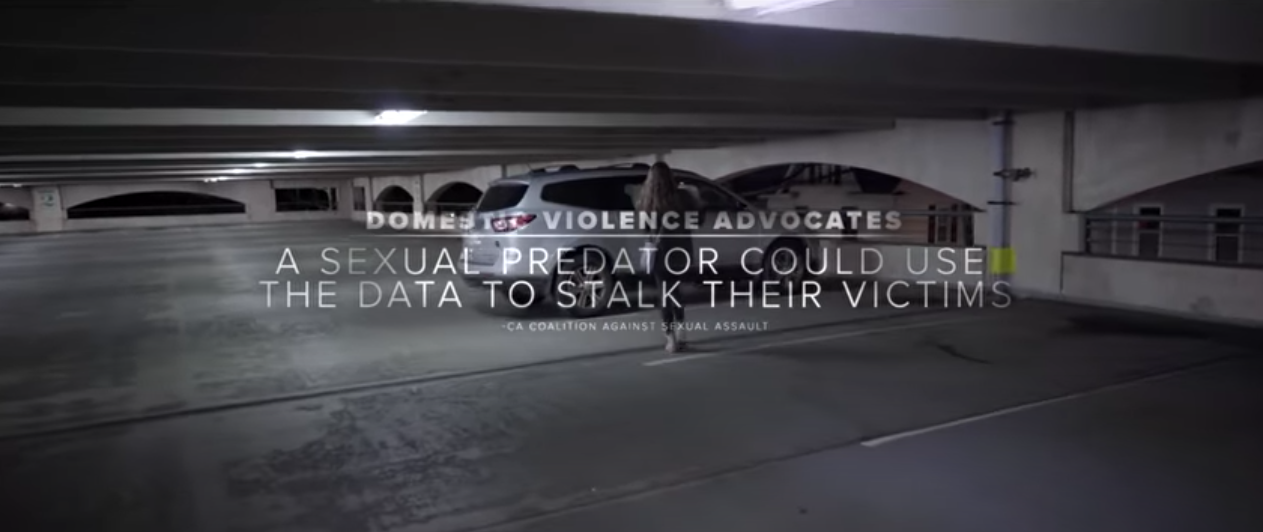Automaker-Funded Groups Are Using Fear Mongering To Take Away Your Right To Repair Your Car
If you don't live in Massachusetts, which most of us don't—a good thing because it's not exactly a roomy state—then you likely haven't seen the commercials aiming to persuade people to vote "no" on Massachusetts Question 1, the "Right to Repair Law" Vehicle Data Access Requirement Initiative. I'm going to say it's a good thing these ads haven't crawled across your screen because they are absolute fear-mongering bullshit, funded by almost all of the major automakers currently selling in America. Their goal is to make it impossible for individuals or independent shops to repair cars.
The ads are funded in part by the Alliance for Automotive Innovation, which includes members such as BMW Group, Bosch, FCA (and PSA, so I guess Stellantis now), Ferrari, Ford, GM, Honda, Hyundai/Kia, Isuzu, Jaguar Land Rover, Nissan, Mazda, Mitsubishi, Porsche and more—hell, even freaking Karma is in on this. It's pretty much everyone except, notably, Tesla, and while it is no angel in this category, it's worth noting that Elon Musk's company is not joining in.
Fundamentally, here is what the yes or no options for Question 1 would do:
A "yes" vote supports requiring manufacturers that sell vehicles with telematics systems in Massachusetts to equip them with a standardized open data platform beginning with model year 2022 that vehicle owners and independent repair facilities may access to retrieve mechanical data and run diagnostics through a mobile-based application.
A "no" vote opposes requiring vehicles beginning with model year 2022 to be equipped with a standardized open data platform that vehicle owners and independent repair facilities may access to retrieve mechanical data and run diagnostics through a mobile-based application, thereby maintaining that vehicle owners and independent repair facilities may access mechanical and diagnostic data through a personal computer.
What this question does is attempt to either close or leave open a loophole in Massachusetts' original Right to Repair law that passed overwhelmingly in 2012. Here's what a yes or no on that vote resulted in:
A YES VOTE would enact the proposed law requiring motor vehicle manufacturers to allow vehicle owners and independent repair facilities in Massachusetts to have access to the same vehicle diagnostic and repair information made available to the manufacturers' Massachusetts dealers and authorized repair facilities.
A NO VOTE would make no change in existing laws.
So, what that did was to put into law that automotive diagnostic systems like OBD-II must remain a standard that is available to both factory-authorized automotive dealerships as well as independent shops and individual owners who want to repair their own cars.
It's a law that protects your ability to go out and buy a $20 OBD reader and get access to the same diagnostic data an authorized dealer has access to—those ominous alerts your car issues with a glowing Check Engine light.
That means you, the car's owner, can choose to repair your car yourself, go to an independent shop or go to a dealer, and you have the same rights and access to the diagnostic and technical information from your car as anyone.
And that's how it should be.
Now, the loophole in the law is that the existing wording is interpreted to not apply to wireless transmission of data. So, while your OBD reader may get some information via that big-ass connector under the dash, if carmakers wanted to supply crucial diagnostic or other data wirelessly, voting "no" on Question 1 (2020) would allow carmakers to make the wireless standards proprietary, effectively screwing independent repair shops, owners who want to do their own repairs or even just owners who want to have more information on their own when they take their car to a dealer.
No reasonable, non-sucker car owner would want to restrict their own ability to get their cars repaired as they choose, right? We saw with the 2012 law how 87 percent of the population already made clear they wanted some degree of right to repair, so how can the automakers convince people to give this basic right to repair up?
Simple: by trying to scare the shit out of them.
Here are the ads the Alliance for Automotive Innovation is running:
Yes, that's the right ad. They're attempting to equate the ability of you or an independent mechanic you choose to read data from your car with being stalked and possibly sexually or otherwise assaulted.

That overwrought commercial states that "a sexual predator could use the data to stalk their victims," and "pinpoint exactly where you are...if you're alone" and "even take control of your vehicle."
Really? A sexual predator can find me just by knowing that cylinder bank 1 is running too lean or that I've got a misfire in cylinder 3?
And taking control of your vehicle? This is still extremely unlikely. You're more likely to get into a wreck by running into one of those giant flailing tube men and then into a chili tanker than having a hacker remotely commandeer your car.
Remember, this is intended for diagnostic data. And, yes, it is absolutely a concern that modern cars can collect other information about you—there's GPS data that could reveal places you've been, there's information from phones that may have paired with the car, there's backup cameras and other cameras and all that—but none of that is the data that's in question here.
And, if that personal data can be accessed via CANbus protocols, then that's an issue no matter what, unrelated to this question. Plus, if you're being stalked, much of the information they're trying to freak you out about can be gained by, you know, watching someone.
There's another, similar ad:
Your address is likely on your phone, too, or your computer or many other computers—people with bad intentions have many options if they want to hack computers to find out about you.
Personal security isn't the issue here—it's a distraction designed to make people scared, and as a result, give up their rights to repair their own cars by themselves or have it done by a shop they choose.
Plus, all of this assumes that somehow your local dealership will have a better handle on keeping any potentially sensitive information more secure than anyone else would. There is zero evidence to support that, and dealership staffs include ordinary dipshits just like every other business in the world. There is no reason to believe a dealership would be able to keep your data any safer than an independent shop.
This proposal for data access isn't a shady way for sickos to find when you're alone and vulnerable; it's a very reasonable safeguard for car owners to have to make sure that they really own the machines they give up their hard-earned money to buy.
Being forced to take your car to an authorized dealer because no one else has access to the car's systems would be a miserable state of affairs, and one we should not let happen.
Farmers have been dealing with these issues for their agricultural equipment for years, and nobody is better off when the big companies have sole access to repair other than the big companies themselves.
The fact that automakers are resorting to such ridiculous and sensationalized attempts to scare people into voting against their own interests shows you how poor their core argument is.
Massachusetts voters: Don't be taken in by this miserable fear-mongering. Vote to keep automotive repair standards open and accessible to all! Vote yes on Question 1 and let all those big rich companies know that they don't get to own your car after you bought it.
